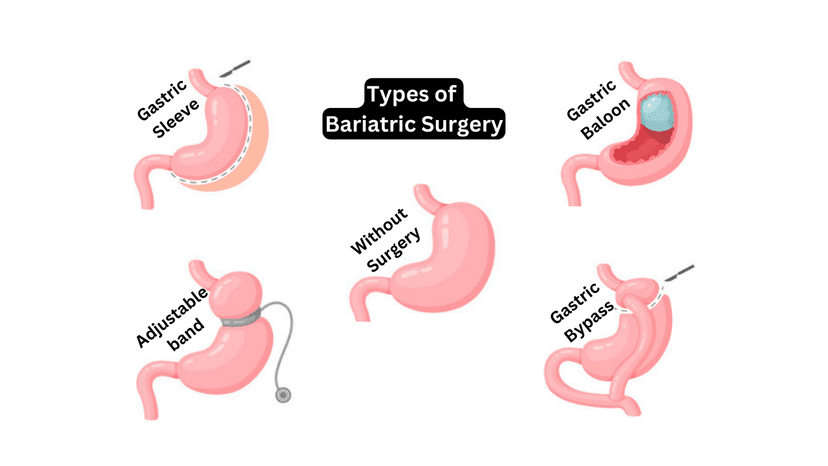10 Years Later: The Long-Term Impact of Bariatric Surgery

Physical Health Outcomes a Decade After Surgery
10 years post-bariatric surgery, patients report a variety of physical health outcomes, both positive and challenging. The findings highlight sustained weight loss, improvement, or even resolution of obesity-related comorbidities, and the ongoing necessity for nutritional management.
Sustained Weight Loss and Its Impact
A decade after bariatric surgery, many patients maintain significant weight loss. This sustained weight loss is a crucial outcome of the procedure, as it greatly contributes to overall health improvement, bolstering patients' physical functioning and quality of life.
Over time, most bariatric surgery patients shed a generous percentage of their pre-surgery weight. According to a study in the Journal of the American Medical Association, average weight loss at 10 years was between 20% and 25% of original weight. This substantial reduction in weight consistently correlates with less strain on the heart, lower blood pressure, and reduced risk of developing chronic diseases like type 2 diabetes and certain cancers.
However, it's important to note that the weight loss trajectory varies between individuals and the type of bariatric surgery performed, with some patients experiencing more complex progress patterns, including partial weight regain.
Improvements in Obesity-Related Health Conditions
Remarkably, bariatric surgery often leads to the improvement or even resolution of obesity-related comorbidities, a key feature that underscores its therapeutic power. Weight loss achieved through bariatric surgery has been linked to:
- A significant improvement in conditions like type 2 diabetes, sleep apnea, and hypertension
- Lower occurrence rates of heart disease
- Decreased overall mortality, as shown in a prospective cohort study in the New England Journal of Medicine
However, these health improvements are most pronounced in the initial years following surgery, making long-term follow-ups critical to ensure continued health maintenance.
Nutritional Considerations and Management
One of the challenges that remain long after bariatric surgery is the potential for nutritional deficiencies. Given the changes in digestion and absorption following the procedure, patients are at higher risk for deficiencies in certain nutrients, including iron, calcium, vitamin B12, and folic acid.
To avoid these deficiencies and their complications, a long-term plan for nutritional management is necessary. A post-bariatric nutrition plan typically involves:
- Regular monitoring of nutritional status via blood tests
- High protein intake
- Multivitamin and mineral supplementation
- Dietician consultations to help with individualized meal planning
Moreover, medical follow-up is crucial at this stage, as managing these nutritional issues can prevent or mitigate potential long-term complications, including bone disease or neurologic problems.
In conclusion, bariatric surgery comes with a diverse array of both promising and challenging long-term physical health outcomes. From sustained weight loss to improved obesity-related health conditions to the crucial need for ongoing nutritional management, understanding these outcomes helps patients, their families, and healthcare providers steer the post-surgery journey with informed confidence.
Psychological and Emotional Well-being Years Post-Surgery
After undergoing bariatric surgery, patients often experience significant shifts in their psychological and emotional states. This not only reflects the drastic physical changes their bodies have undergone, but it also sheds light on the deep-rooted connections between our physical bodies, our minds, and our emotional health.
Enhancements in Self-Esteem and Quality of Life
One remarkable improvement that many patients report following bariatric surgery is an enhancement in self-esteem and an elevated quality of life. This can be attributed to various factors, including weight loss, improved health markers, increased physical capabilities, and the achievement of a long-desired goal.
Patients often describe feeling a sense of renewed confidence and positivity towards life. These feelings can be amplified by the support they receive from clinical teams, support groups, and their personal social networks. These psychological improvements are quite significant, considering that a good number of bariatric surgery candidates struggle with low self-esteem and reduced quality of life prior to their procedures.
Nonetheless, this is not to suggest that the post-surgery journey is an effortless stroll towards better emotional health. One needs to recognize the possible challenges that may emerge down the road.
Navigating Body Image and Mental Health Challenges
Despite many positive outcomes, some patients contend with body image and mental health challenges after surgery. These can be evoked by the alterations in body shape and size, coupled with the need to adjust to new dietary and lifestyle routines.
In some cases, while the physical transformation catalyzes a boost in self-esteem, it may also incite anxieties around maintaining the new weight or coping with excess skin, a common aftermath of rapid weight loss. It's also not uncommon for some individuals to grapple with feelings of identity confusion or to face social pressures that can add to psychological distress.
The Importance of Ongoing Psychological Support
Given the potential for such psychological challenges, the necessity of ongoing psychological support post-surgery cannot be overstated. Mental health specialists play a critical role in helping patients navigate these emotional and psychological transformations, providing necessary tools and resources to manage potential obstacles.
This support might comprise regular individual therapy sessions, participation in support groups, or in severe cases, engagement with psychiatric services. The intention here is to mitigate the risk of complications like depression, anxiety, or in rare instances, the emergence of new eating disorders.
In sum, while bariatric surgery can bring forth remarkable changes in an individual's physical health and appearance, there's an equally significant metamorphosis happening on the psychic and emotional fronts. Awareness, understanding, and the right support can aid in making the journey healthier, happier, and more sustainable in the long run.
Lifestyle Changes and Adaptations Over a Decade
The journey following bariatric surgery is often accompanied by substantial shifts in lifestyle and habits. For maintaining the benefits of bariatric surgery, these changes are not just temporary but need to span across a decade and beyond because sustainability is essential in health. This section provides a deep dive into three pivotal areas: adapting to and maintaining healthy dietary habits, the role of physical activity in long-term health, and leveraging support networks for success.
Adapting to and Maintaining Healthy Dietary Habits
A critical part of the post-bariatric surgery journey is adopting and sustaining healthy dietary habits. It means transcending the conventional diet mindset and embracing a long-term perspective of balanced nutrition and mindful eating.
Your diet post-surgery gradually progresses from liquids to purées to a solid diet, and it is paramount to adhere to your nutritionist's guidelines during this phase. Once on a solid diet, focus on hydration, quality protein sources, fruit, vegetables, and nutrient-dense foods. Also, the body's absorption of certain nutrients, such as vitamin B12, calcium, and iron, can be reduced due to bariatric surgery. As such, keep an eye on potential nutritional deficiencies and consider taking vitamin and mineral supplements as recommended by your healthcare provider.
Remember: in this journey, patience, and self-compassion are your allies. You may occasionally find yourself reverting to old habits – but don't let those moments discourage you. Instead, regard them as opportunities for learning and growth, and recommit to your healthier habits.
The Role of Physical Activity in Long-Term Health
Physical activity plays a pivotal role in not only facilitating weight loss after bariatric surgery but also in reducing the risk of many chronic diseases such as cardiovascular disease and diabetes. Moreover, exercise enhances mental health, combating depressive and anxious symptoms that may accompany substantial lifestyle changes.
Although it is essential that you engage in physical activity, remember to discuss with your healthcare provider when and how to start. Initially, you may begin with light activities such as short walks, gradually increasing duration and intensity as your body recovers and adapts. Endorse moderate-intensity activities like brisk walking or casual cycling as safe yet effective forms of exercise.
Building a positive relationship with physical activity—seeing it not as punishment but as an act of self-care—can facilitate consistency. Additionally, the routine of physical activity can be amplified with variety—alternate between strength training, aerobic activities, and flexibility exercises.
Leveraging Support Networks for Success
Navigating the journey following bariatric surgery can be challenging, and having a robust support network can make a significant difference. These networks can provide practical advice, emotional support, motivation, and affirming a sense of belonging—bolstering your resolve to maintain healthful habits.
These networks may involve healthcare professionals, including dieticians, psychologists, exercise physiologists, and post-bariatric surgery support groups. Sharing experiences and insights with others who have undergone similar journeys can provide additional, unique support. Remember, it's okay to ask for help. Leaning on these networks, especially during challenging times, is not a sign of weakness but a step towards long-term success.
In Summary
This blog post provided a comprehensive overview of the physical and psychological outcomes a person can expect a decade after undergoing bariatric surgery. The physical health outcomes include not only sustained weight loss but also improvements in obesity-related health conditions. However, this comes with the necessity for ongoing nutritional management due to potential deficiencies.
On the other hand, bariatric surgery often leads to significant improvements in an individual's psychological and emotional well-being. It tends to enhance self-esteem and the overall quality of life. However, it's common for some individuals to face body image and mental health challenges, thereby underscoring the necessity for continuous psychological support.
The post also highlighted the importance of adopting dramatic lifestyle changes and adaptations over a decade, moving towards balanced nutrition, mindful eating, regular physical activity, and leveraging of support networks to realize the long-term benefits of bariatric surgery.
Action Plan
A successful post-bariatric journey is hinged on not just understanding these outcomes but implementing actionable strategies. Thus, the following steps can guide your journey:
-
Develop a Comprehensive Health Plan: Engage with your healthcare provider and build a post-surgery health plan that covers nutritional management, physical activity, and regular health check-ups.
-
Engage with Mental Health Professional: Concurrently, seek the services of a mental health specialist. They can equip you with tools and resources to navigate the emotional and psychological transformations.
-
Join Support Networks: Solidify your support system by joining post-bariatric surgery groups or communities. Their insights and shared experiences can be invaluable.
-
Embrace Physical Activity: After consulting with your healthcare provider, start indulging in light activities, gradually increasing duration and intensity as your body recovers and adapts.
-
Adhere to Nutritional Guidelines: From transitioning to a solid diet to recognizing potential nutritional deficiencies, it's essential to follow your nutritionist's directives.
Remember, the key lies in consistent, sustainable changes which may be challenging but are rewarding in the end.
